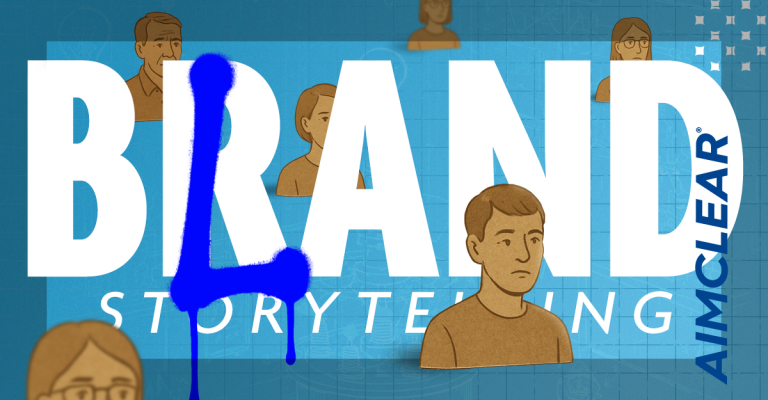It’s a groovy thing – to travel across our great country and share industry wisdom at a conference a la Search Engine Strategies New York. Next week, dozens of respected marketers will do just that– and it will be a rockstar sight to behold. One of those speakers will be masterful global search engine marketer, Bill Hunt – a guy whose industry intellect, not to mention international conference speaking gigs, knows no limits. Seriously. Over the past few years, Bill’s averaged between 250,000 and 300,000 flight miles per year, amounting to about 15 to 25 countries a year. Lucky for Bill, his global-geared profession syncs up nicely with a seemingly unquenchable thirst for travel.
President of Back Azimuth Consulting, where he works to help clients better understand their customers, Bill also serves as Chief Marketing Officer of OC4, a start up Cloud Computing Consulting company. He co-authored bookshelf staple “Search Engine Marketing, Inc.” and writes regularly on Search Engine Land, Search Engine Watch, and his own search and social marketing blog, WHunt.com. As a member of the SES Conference Advisory board and the Board of Directors of the Search Engine Marketing Professional Organization (SEMPO), Bill’s a highly active contributor to the search marketing community.
You can’t pick up a copy of next week’s #SESNY session agenda without seeing Bill Hunt’s name all over it. He’s kicking off Day 1 with Search Engine Marketing 101, then moderating his own sequenced Enterprise-Level SEO session on Day 2, wrapping up Day 3 with another solo presentation on Advanced Keyword Modeling. AIMCLEAR had the pleasure of a candid Q&A with Mr. Hunt prior to heading to the City that Never Sleeps. Topics of discussion ranged from timeless SEO constructs to chief concerns translating symbol-based languages to English and vice versa. We even got sneak peeks at Bill’s upcoming presentations. Interested? Read on… especially if you want to understand the significance of this peculiar interview title.
| AIMCLEAR: Enlighten the readers at home. How did you end up in this industry?
Bill Hunt: Both by accident and on purpose. Back when Yahoo was just a directory, I was called by a large Silicon Valley company asking for my product catalog. At the time I owned an earthquake kit and disaster preparedness consulting company. Asking them how they found out about my company they told me on Yahoo. Someone had added my company to Yahoo as a great resource. I started telling friends about it and they were willing to pay me to submit them. I had a similar experience in Japan with my localized site after the Kobe earthquake in January 1995. I had a lot of sales to Japan and as local newspapers wrote about it it became a national story of how I used this new thing called the Internet to reach Japan. Soon, my wife Motoko and I were very busy helping companies market online to Japan via Japanese directories and search engines I could not manage the original business which had also grown. I ultimately sold that company to focus on developing localized sites and global search marketing before we even had a search marketing industry.
| aC: How have things changed, since your groundbreaking book, “Search Engine Marketing Inc.” ? Which SEO challenges and opportunities will never change?
BH: First, the way we guide the manger’s approach to search marketing has not changed at all. The objective of attracting, engaging and retaining search visitors has remained unchanged but often overlooked. The majority of the algorithms have changes to filter out spam and non-relevant content which often have no real impact on properly optimized companies sites. The challenges of getting budget, making changes to the site and providing relevant searcher interest based content are still there. These are operational challenges that live on and have no connection to search algorithms or changes be the engines. I think these are getting harder with so much distraction with social media. I don’t mean that in a bad way but a tactic like SEO gives a company an “Always On” situation where you can connect with them any time they look for things in a search engine with still is exponential more than the interactions on social media and too many companies are loosing site of this.
| aC: Spotlight time! Point us to the three blog posts you’ve written for any publication, that best provide your “vision” for the technical structure (tlds, subdomains, url structure, etc…) for multinational CMS deployment, Why are they important?
These three are the best for users who are trying to sort out their global site strategy on a technology level:
- Less Common Problems of International SEO | SearchEngineWatch: These are the smaller problems which can cause big headaches of not sorted correctly.
- Are Language Options Hurting Your International Sites? | SearchEngineWatch: Too many sites are using detection methods and not account for the nuances of search engines.
- Developing a Global SEO Diagnostic Plan | SearchEngineLand: This is a new article that while not overly technical can identify many problems sites have with global issues.
| aC: What are the primary concerns, when adapting English to other languages, especially symbol based Asian languages like Chinese?
BH: The biggest concern is getting the words correct. Like in English, words have many variations but these can be vastly different in other countries. Many times the words and content is linguistically correct but not popular phrases. In China there are twenty-one ways to write “Anti Virus” all of which are linguistically correct the the search volume ranges from 50 to 500k in searches.
One thing many don’t know is that many Asian languages don’t have space between words and the engines need to first parse the words from the sentence to understand the content. Using bad machine language or an inexperienced translator with these languages can be a huge problem limiting the understanding of your content by searchers and search engines.
Symbol based languages like Chinese and Japanese are double-byte characters. Meaning to render the character it requires twice the amount of ones and zeros as a Western character. This causes problems with length of titles, PPC ad copy and many SEO and PPC management tools are not set up to handle the double byte character which is why they don’t display correctly.
| aC: What tips do do you have for am American e-tailer, looking to expand globally.
BH: Hands down the best of to go and visit the market personally and make sure you understand why they would buy from you and how they do it in their country. Many merchants assume they can just translate the site and promote it and people will swarm to it which is not always the case. There is often a lot of fear of buying abroad that custom tariffs and shipping costs will be too expensive, they won’t receive their goods and what about support after purchase.
Clarity in the support and purchase channel that flows out of the first tip. The first thing to localize are those pages that explain who you are, how you do business, how people can buy from you and how you handle problems. These reduce the concerns of users.
Understand real market opportunity and what share you can capture. Too many people target markets due to language or location without understanding if there is demand for the products or if you can compete against a local retailer. Other challenges are if they can buy from you. In countries like Russia, India and China people have credit cards but many of them only work in their country. Voltage and electrical outlets are another challenge. I have seem US retailers of electronics fail in other markets ince they did not present the local country models of products that handle the local voltage and plugs.
| aC: Let’s be honest. You’re ALL over the 2012 SES NY agenda. You lead off Day 1 with Search Engine Marketing 101, continue into Day 2 moderating your own curriculum for Enterprise-Level SEO, and kick it up a serious notch Day 3 with Advanced Keyword Modeling, not to mention more moderating with Enterprise Link Building. I was about to ask if you prefer teaching the fundamentals over the hard stuff, or vice versa, and how you feel about moderating, and what you like about sequencing… but instead… just tell us a little bit about your sessions this go-round 🙂
BH: That is pretty scary. I actually like both types of sessions. Presenting at the Search Marketing 101 is pretty humbling since it does force yourself to take out all the complexity and think about Search Marketing in it purest form. That is one of my favorite and most rewarding sessions to do. Since a large number of attendees are there for the first time and many of them have just gotten into search it allows me to give them a different perspective on Search Marketing that they may not get in other sessions. In the SEM 101 session we give a robust overview of paid, organic and digital asset optimization and connect those topics to the more detailed sessions f the conference. This session is a hype-free program that gives you a base understanding of search marketing that will allow you to get more out of the more specific sessions.
The Enterprise sessions have all been redone to focus on how to manage a complex many country or many product program. We have actual brands that have made significant improvements in their programs by taking different routes to build and manage their programs which is what the audience feedback has told us they want. We also have a technical speaker to help attendees understand the complexities of their infrastructure and how to get fragmented parts to work tougher and gain the exponential potential that complex sites can offer.
The Advanced Keyword Modeling session comes from my current passion of mining the goldmine of keywords. I will show the attendees how and what to look at to find nuggets of opportunity they are missing as well as how to look at their words individually and as clusters to better understand their customers. The alignment of keywords to social media will be interesting and I think a widely underutilized aspect of keyword research and data mining.
| aC: If you could be any animal, what would you be? Why?
BH: I think I would be a beaver. They are problem solvers and hard working.
| aC: Dam good answer. Thanks so much for your time today, Bill, and these extra special glimpses into global SEO. Safe travels to the Big Apple, we’ll be seein’ ya at the show!








